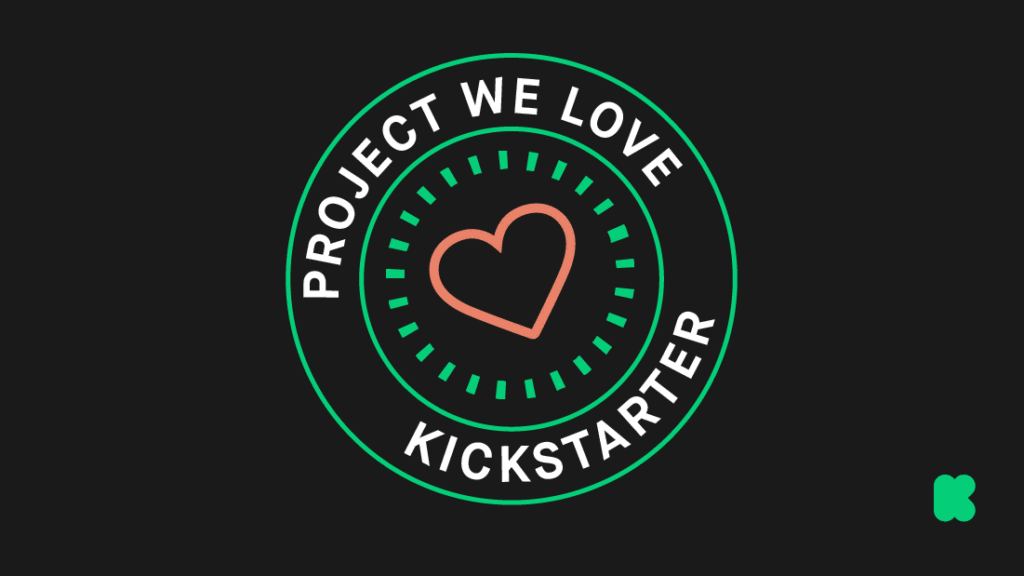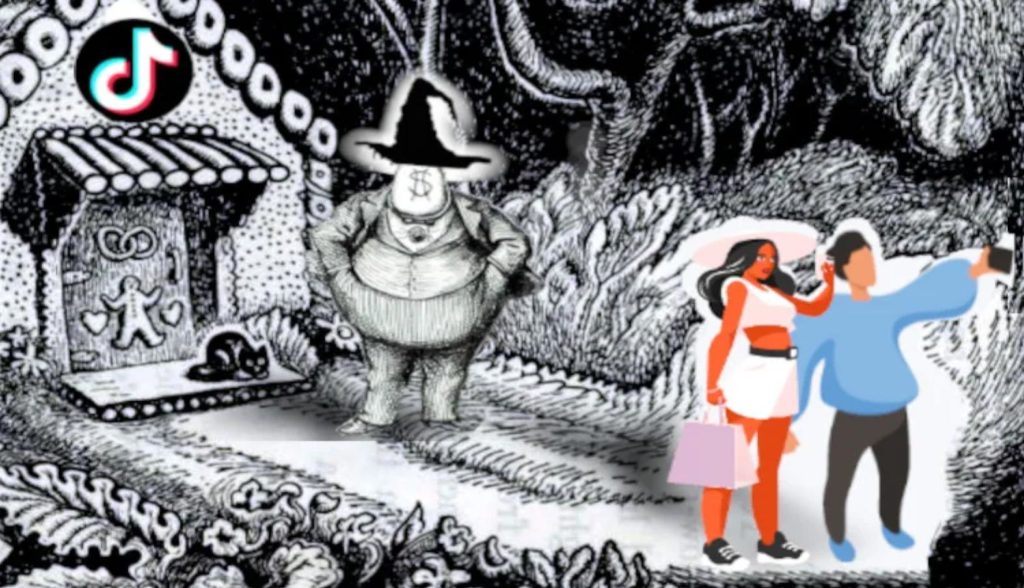Live Deliciously

The spooky season might have come a little early in our house and we’ve started watching spooky films.
If you happen to have seen The Witch (2015), a particular line might have stood out to you. It’s just so memorable.
“Black Phillip,” a cute little goat who turns out to be the devil, tries to tempt our hero into witchcraft. He says to her:
Wouldst thou like taste of butter? A pretty dress? Wouldst thou like to live deliciously?
I love the escalation and I admire the decisions made on the choice of words. Butter and a dress, luxuries in the 17th Century and heart-breaking to the modern viewer, give way quickly to “living deliciously,” which could mean any level of erotic decadence.
“A taste of butter” sounds almost sexual by the end of the offer. “A pretty dress” ties innocence to sexuality. It’s all very devious. Deviousness is obviously what one would expect of the devil but, since most recent horror films are poorly thought-out rubbish, it’s a rare treat to get this kind of literary attention to detail.
Anyway, I would like to tempt you, madam, with a life of deliciousness. Wouldst thou like to live deliciously?
If the Puritan mode of hard work for little reward isn’t working out for you, come on over to my place. You know you want to.
*
Kyriarchy
In feminist theory, kyriarchy (/ˈkaɪriɑːrki/) is a social system (or set of connecting social systems) built around domination, oppression, and submission.
It was coined by a theorist called Elisabeth Schussler Fiorenza in her 2001 book Wisdom Ways. Her glossary defines kyriarchy as:
derived from the Greek words for “lord” or “master” (kyrios) and “to rule or dominate” (archein) […] a complex pyramidal system of intersecting multiplicative social structures of superordination and subordination, of ruling and oppression.
So the kyriarchy is the social system that keeps all intersecting oppressions (e.g. patriarchy, racism, the work ethic) in place.
We sometimes like to remind our readers that, with all these forces raging around us, being stuck at an office desk or flipping patties in a fast food place IS NOT YOUR FAULT.
You’re at the razor’s edge of history, the crest of a century of what we might now call kyriarchy. It doesn’t matter how normal everything looks, because you’ve never seen anything different. Listen instead to your bones: you’re not out of your mind for wanting escape.
*
There are 4 days left on the Kickstarter clock. Here’s where to get involved.
The Enshittification of the Internet
Here’s an old Guardian article, to which our attention is drawn by a letter-writer in the Idler magazine.
It’s about the “enshittification” of the Internet (a term borrowed from Cory Doctorow), specifically the decline of Twitter.
Enshittification goes further than Musk’s Twitter (or “X” has he absurdly wants us to call it now) and even social media in general.
For years, so many websites have been plagued by pop-ups, surveys, cookie warnings, paywalls and adverts that are sometimes so full-on as to make the site barely usable.
For example, the adverts on the “Fandom” Wiki, a platform for pop culture fans to add to the collective knowledge of their favourite fictional worlds, are so pervasive that the long-established Memory Alpha (the definitive Star Trek Wiki) has been completely ruined. I dearly wish they’d move the content to another platform. I complain about this so much that my wife bought me a 1999 Star Trek Encyclopaedia for my birthday last year. Being a real book, it is of course ad-free, beautiful, well-written by experts instead of semiliterate randos, mercifully untouched by terrible “NuTrek” additions to the cannon, and it doesn’t take ages to load. Of course, it means I have an embarrassing Star Trek book on my otherwise impeccable bookshelves, but desperate times mean desperate measures.
And then there’s the Guardian itself, the UK’s most prominent so-called Liberal news source. It’s theoretically free and unlimited, but it’s plastered with belch designed to make the site unpleasant in the hopes that you might shell out on a subscription. To me, this deliberate act of enshittification has the opposite effect and I spend far less time on the site than I used to. I certainly won’t give the bullies my lunch money.
Anyway, that Guardian article (after explaining the problems of network effects) ends with:
we are left with the hope that, eventually, enshittification might become so repulsive to users and consumers that they will rebel. For that to happen, though, they will have to remember that other realities are possible – that there was a time when things were better. The world doesn’t always have to go to the dogs.
That’s sort-of what happened with my Star Trek Encyclopaedia, I suppose. My wife remembered there was an alternative reality. If only to shut me up.
Wikipedia remains mercifully unmolested by claptrap (and if you have an account there, which you should, you can change your settings to stop seeing the fundraisers and the “Wiki loves monuments” banners).
You’ll often find that the Old Web is still there, which is why there’s an Old Web review page in our new magazine, to serve as a guide to non-enshittified places on the Web.
Elsewhere, you can limit your exposure to website (and YouTube!) ads using AdBlock Plus, which I’ve been using to great effect for decades but which I’m surprised to find people often don’t know about.
I hereby promise that the New Escapologist website will never fall to enshittification. This is partly on principle but also partly because I don’t know how to make a pop-up even if I wanted to. Even so, you could buy our print editions, which are literally impossible to enshitten.
Then We Scurried Away

Thomas Grundy writes entertainingly in his email newsletter about a stint in the CFF (“the Combined Cadet Force,” he explains, “otherwise known as the youth Army, Navy and Air Force here in the UK.”)
Despite the CFF’s popularity among other kids his age, Thomas did not have a good time. “I spent dusky evenings crawling on my hands and knees through sodden, muddy fields,” he writes, “ate sloppy food from metal tins, marched relentlessly through the quad until blisters were peeling from our feet, and the accommodation was like something out of a horror film (think Saw meets Cabin in the Woods). I could even see the lights of a nearby Hilton [Hotel] twinkling through the fir trees.”
So he made like Saint Houdini himself and escaped:
on a deeper level I knew the CCF just wasn’t for me. So when I was back at school, I grabbed a friend who was equally unconvinced … and we strode over to the kit-room, dumped our kit on the floor, looked up at the growling kit-man and sheepishly announced “We’re quitting.”
Then we scurried away.
It was a huge relief. And I was delighted.
It was an early example about how quitting can be a positive, intentional action rather than a shameful or guilt-ridden decision.
Hooray! Thomas writes in other email instalments of Matters Escapological too. You can read or join his mailing list here.
*
That Was Why the Dramatic Flight
From Mislaid, a novel by Nell Zink.
She couldn’t help herself. Life with Lee had been so drab that running away had a bounden duty to be exciting. She felt she had a right to ask that much. That was why the dramatic flight, the abandoned houses, the new identity.
This is the kind of escape I don’t think about often enough, so obsessed am I with quitting work: people who flee their crappy partners.
Mislaid is a superb and darkly funny novel. The protagonist, Peggy, starts out as a viciously intelligent undergrad whose academic career is sidelined by an inappropriate (but fun to begin with) relationship with her (gay) poetry professor. Things get worse and she, along with her daughter, escape to live under assumed identities. Peggy becomes “Meg” and Mireille becomes “Karen.”
I’d better not say much more because some of the surprises in the book really would be ruined by advance knowledge, though the LA Review of Books has an excellent write-up if you don’t care about spoilers.
I’ll mention, however, that we don’t spend all of our time on the road with Peggy/Meg and Mireille/Karen and do in fact stay partially with Lee, witnessing his hilarious tantrums and earnestly struggling to raise his preppy son on his own. In that side of the book we witness the following phrase bellowed at the tenured poetry professor:
“Dammit, Lee. You bullshitted your way into the last of the bullshit jobs!”
It’s a different definition of bullshit jobs to the one we use here at New Escapologist, but that (I think) is what makes it so funny.
One would hope that teaching and writing poetry on the campus of a great American university would be one of the most dignified jobs imaginable. But if you use it as a vehicle for your own time-wasting and wheel-spinning, it’s probably just as bad as gawping into someone else’s spreadsheets in an open-plan office. And it would be all your own fault!
*
CB Editions

I love CB editions. It’s a London-based small press whose books are reliably readable and nicely presented. It’s run by one Charles Boyle whose CB-published novel (how did he manage that?) The Other Jack is a recent favourite of mine.
I share the following excerpt from his blog as an example of a creative business practice that actually works. It works in a small way, which is enough.
The average number of books sold per year since the start of CBe is around 2,500, and last year was a little below that. No bookshop could be run on that. For the authors’ sake I should be selling more. On the other hand, I’m still here, having stumbled upon a way of doing this that doesn’t require me to abide by all the prescriptions of the industry experts.
Stendhal’s The Charterhouse of Parma was written in November and December 1838 and published the following April. I once took on a book in December and, when the author told me he was dying, published it the following February, but in 2023 that’s not usually how it’s done: books are not published for at least a year, often longer, after they are taken on because you need a marketing campaign and Advance Reading Copies and puff quotes on the cover, all the stuff I don’t enjoy and am therefore not good at.
I don’t think CBe is a throwback. Nor is it the work of a man who lives off-grid in a shed in a field. I use the internet and typesetting software and digital printing and can learn new tricks when it suits me. I mean: when it suits someone of a certain age and temperament. I am lucky and privileged (not rich) to be able to do this.
CBe is a reminder that you don’t need to take over the world (or to “scale” as a business dipshit would say) to fill your days with pleasant work and to promote your idea of culture in the world.
I recommend their beautiful, beautiful books.
*
Letter to the Editor: Tears Dripping Into My Sandwich
To send a letter to the editor, simply write in. You’ll get a reply and we’ll anonymise any blogged version.

Hello Robert,
I always open your newsletters with a mix of hope and shame. I remember my second day of full-time employment, sitting alone in a subway, tears dripping into my sandwich, an escape plan forming in my mind.
Fifteen years later I remain imprisoned by my cowardice and lack of imagination. We are all born straight-backed and defiant, but the world has twisted my body and broken my will. You shared a post of mine in the newsletter once, when I was still on Twitter, but I am a fraud! Unworthy!
Yours,
Reader E
*
Oh no! I don’t want anyone to feel like that when they’re reading our newsletter.
Escape from full-time employment is a tough nut to crack. That’s why New Escapologist exists really. Escape plans are hard to formulate, so we have this periodical to share them and to lament their failure when failures happen.
There’s zero shame in not escaping. Most people don’t escape. We show in our pages that escape is possible, but it’s by no means certain nor even merely probable. Examples of successful escape aren’t there to taunt you but to give hope that maybe, just maybe, you can follow suit.
To escape, you might have to look poverty in the whites of its eyes and certainly to face down the idea of failure. You need to build failure into the plan. What would happen if you failed? What would be the worst case scenario? Could you face it?
Besides, many people who read our pages are perfectly happy in their jobs, have found ways to be content inside the box, or are working very slowly towards an escape.
Fifteen years isn’t such a long time really. Your job, for all that might suck about it, will have provided material comfort in that time. You’ll have something to show for it. And, if you really want to escape, you eventually will. Even if it’s just at the natural point of retirement into a state pension. In that way, escape is inevitable really. You just have to stay alive and be patient.
Target Achieved

We met our Kickstarter target a few days ago (after just three days of it being online).
This means New Escapologist will definitely be returning as a printed magazine. Joy!
Issue 14 (Vol. 2, No. 1) will be shipping in early August. It’s practically ready to go.
You can order the all-new Issue 14 (or subscribe for multiple new issues) by backing the project here. And I’d encourage you to do so!
The Kickstarter people, incidentally, selected us as a “project we love.” I’m not sure what that really means but it sounds complementary, doesn’t it?
Anyway, here’s what we wrote to the first 67 people to back project:
Thank you all so much. We did it. 67 backers raised the £3,000 necessary to bring New Escapologist back as a print periodical.
With 16 days left on the campaign clock, what on Earth shall we do next? “Stretch goals” feel like moving the goal posts in a way that will annoy everyone (so we probably won’t do that), but extra funding would still help.
For example, backers’ shipping fees were counted towards the target and, since we can’t spend that money more directly on the project, it would be nice to make up for it by attracting another £300 or so. Also, we just bought a £30 address label printer we didn’t budget for. D’oh.
Most importantly: our aim is not to “get money” but to reach readers. The hope is to build a culture around the magazine and for that it would be nice to reach perhaps 150 readers for the first issue. 67 readers are already on board (no small number) but 162 said [via the reader survey] they wanted the mag to come back, so hopefully some of those other 95 potential readers will join us.
So please, if you have any more juice to give to this project, tell you friends (by email or tweet or smoke signal) about the Kickstarter. Or, since you’ve really already done your duty, put your feet up and wait for the new issue of New Escapologist to plop onto your doormat next month.
Yours gratefully,
Team NE
Meet ISO 7000-2029
Further to my research into ISO symbols, this here is another example that means “escape.”
It seems to be reserved for equipment and isn’t used very widely online but it’s still a cool symbol. It’s called ISO 7000-2029, which I’m sure we can all agree is a catchy name.
It’s function?
To identify the control to cancel the current action or exit from the current state.
Nice.

It really implies motion, doesn’t it? Energy leaving an enclosure. Nifty.
The Mainstream Promise is Simply a Lie

From Confronting Capitalism by Vivek Chibber:
the mainstream promise–that if you work hard and play by the rules you will make it to the top–is simply a lie. The rules are what create the misery.
The basic set-up of capitalism is simple–you show up for work every day, work hard, and do what you’re told. The promise is that if you abide by these rules you will be rewarded with the good life. The promise is based on a very simple premise–that there is a link between effort and reward. If you work hard, the work will pay off.
But the secret to capitalism is that there is no reliable connection between effort and reward. […] This is a basic fact about capitalism, and it is built into the system. It is the natural condition of an economic system in which the bulk of the population is given a simple choice: “Work for what we offer or go without a job.”
What determines people’s economic fate in capitalism is not their effort but their power. And employers always have more power than workers.
There’s so much more in this handy little book that should be of interest to Escapologists (or indeed anyone who senses injustice in their work life but is yet to articulate it).
I’ll be quoting a little further from Chibber in the forthcoming Issue 14, which you can get via Kickstarter here.




